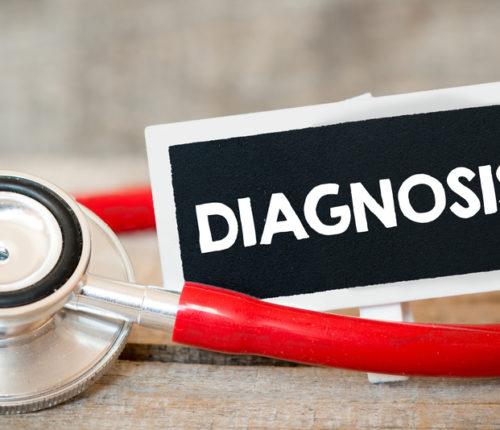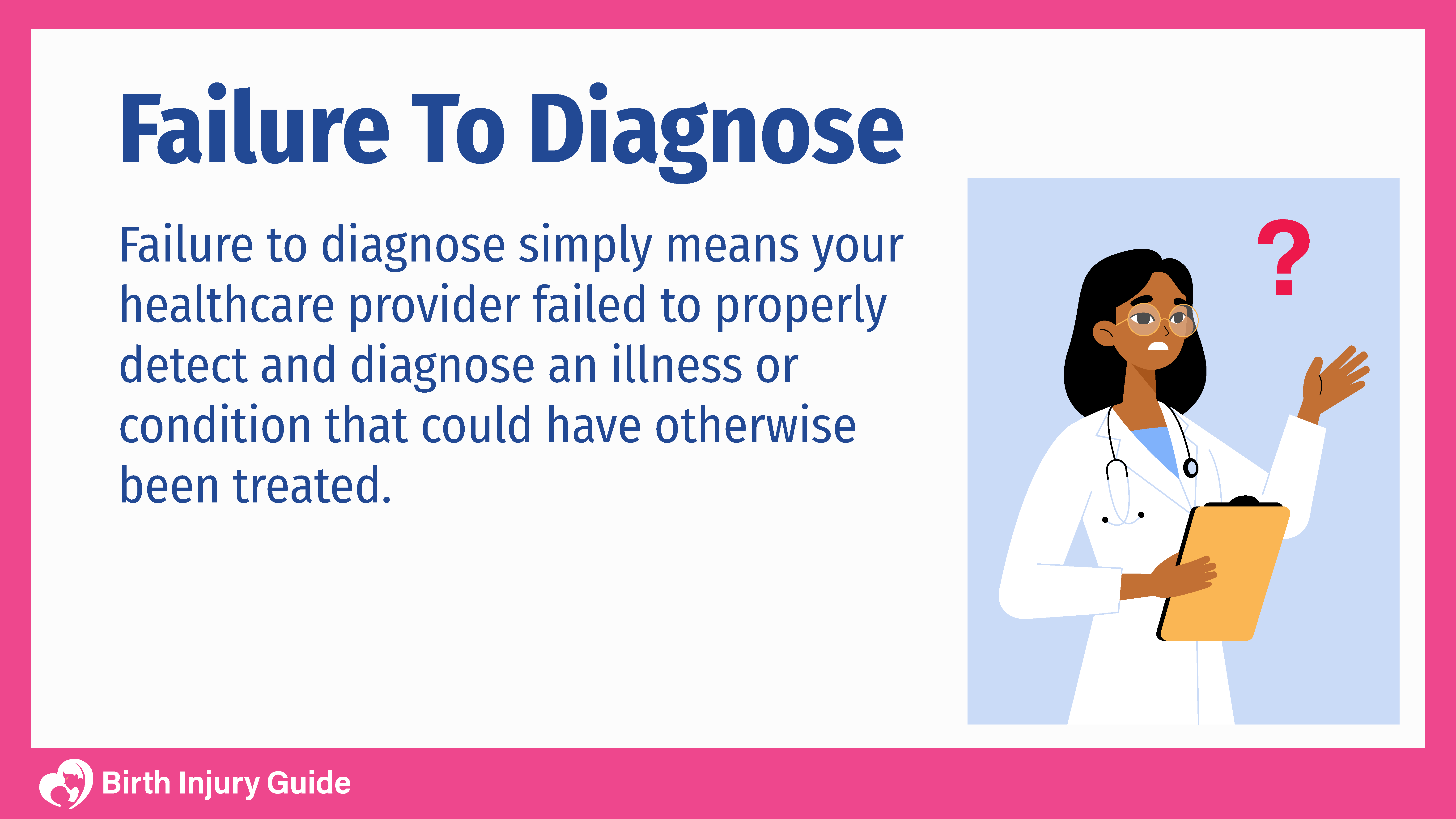
Failure to Diagnose
Medical mistakes can take on a variety of forms, such as failing to diagnose a health issue. Failure to diagnose can lead to life-threatening health complications and even death.
During pregnancy and shortly after birth, the health of an infant and mother greatly relies on the knowledge and care of medical professionals. Although in most cases, experienced physicians and medical staff competently care for a mother and infant’s medical needs, there is unfortunately the risk that mistakes will be made and health issues will be overlooked.
What is Failure to Diagnose?

This can happen if the healthcare provider completely misses the condition or misdiagnoses the condition as something else. Failure to diagnose a condition while you are pregnant or are in labor is a type of medical malpractice if the failure leads to birth injuries to the infant. It may also be medical malpractice if you suffer injuries.
It’s important to note, however, that not all failure to diagnose cases are medical malpractice. You must have a medical relationship with the healthcare provider. A doctor who offers you poor advice as a friend, but there is no professional doctor-patient relationship, isn’t liable for you or your baby’s injuries.
In addition, your doctor’s failure to diagnose must be what caused you and/or your baby’s injuries. For example, even if your doctor failed to diagnose gestational diabetes, you cannot sue for injuries if a slip and fall accident injures your baby. However, if diagnosed but untreated gestational diabetes caused harm, it may be medical negligence.
In other words, the injuries must be the result of the condition or a worsening of the condition that was not diagnosed.
Common Reasons for Failure to Diagnose
There are several reasons why failure to diagnose may occur. While it is true that every human being can make an honest mistake, the truth is that most errors in diagnosis are preventable. Some of the common reasons why failure to diagnose occurs includes failure to:
- Detect and properly manage maternal infections
- Diagnose or treat gestational diabetes
- Conduct a proper physical exam and review the mother’s medical history
- Order proper screenings and tests
- Detect fetal distress
- Detect and diagnose abnormal fetal presentation (i.e. breech, etc.)
- Recognize that the infant is too large for a vaginal delivery (fetal macrosomia)
- Diagnose and treat infant health problems such as jaundice
- Detect, diagnose and treat preeclampsia
Consequences of Failure to Diagnose
The outcome after a physician fails to diagnose a health condition will depend upon the type of condition and the severity. For example, if infant jaundice isn’t diagnosed and treated, babies are at risk for kernicterus, a dangerous complication.
If a maternal infections are not diagnosed and treated, such as Group B Strep, the infant may be at risk for sepsis, meningitis or death.
Other consequences of a failed diagnosis may include:
- A surgery that could have been prevented (maternal and/or infant)
- Permanent physical injuries to the infant
- Developmental delays
- Nerve damage
- Neonatal stroke
- Reduced infant blood flow
- Erb’s palsy
- Brachial plexus injuries
Keep in mind that these conditions are only a few of the risks associated with failure to diagnose. The outcome will depend on the exact cause of the condition and the severity. These risks should be used as a guideline of common examples. If you have additional questions and concerns, talk to your doctor.
If failure to diagnose has caused injury to you or your child, you may also find it helpful to consult with a birth injury lawyer who can advise you of your rights.

